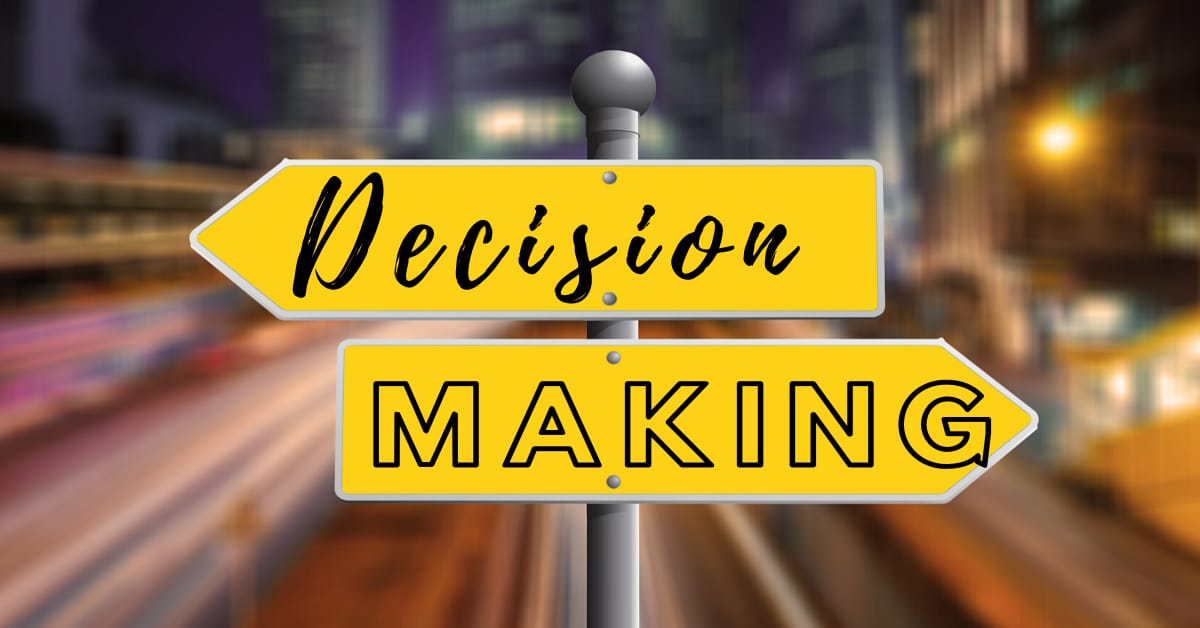Making Decisions in the blink of Uncertainty
“ I am not sure is this the right way?”
“What if it doesn’t work in the future?”
“What if I fail?”
“What if things go wrong?”
“What if I make the same error as the last one?”
“What if they don’t respond to me properly?”
“What if they reject me again?”
Experienced this phase while making important life decisions??
Whether it’s about next step in your Career or something in your relationship space or a very important business decision we need to make, we are in this spot & for many people its a state of temporary mental paralysis.
Simply, “We are Stuck.”
But regardless, we eventually need to make decisions & thus it’s very important for us to know how to do that.
If I need to summarize the whole blog in one statement,” Asking the right question is the answer.”
If you did understand by now, I still want you to read through this blog & for those who need some more explanation to the above statement lets dig into it.
What is the purpose of a question – It triggers certain parts in our brain which then leads us to certain loops of thinking which we already know or have interpreted on.
Now when it comes to decision making it’s very important to ask the right questions as it triggers areas which we haven’t thought of or we have been avoiding intentionally due to the temporary discomfort it may create.
It’s a series of these right questions which will eventually help us make the right decision as it gives a different dimension to our rigid thinking creating a possibility of healthy decision eventually.
One thing that we need to understand here is to be really honest with yourself during this inquiry. We at times don’t realize how smoothly we avoid answering the question with utmost truth which eventually leads us to make a decision which still involves a lot of scepticism.
Having considered the many questions that can help inform a good decision, at some point you must stop asking questions and just decide. How does one know when that time has arrived?
The venture capitalist Schroeder says: “In decision making, you’re always navigating between gathering enough information and gathering too much.” As to how much is enough, here’s an interesting formula from Amazon CEO Jeff Bezos: “Most decisions should probably be made with somewhere around 70% of the information you wish you had. If you wait for 90%, in most cases, you’re probably being slow.”
But getting to 70 percent usually doesn’t happen in a “blink.” Decisions should not be rushed, for any number of reasons—especially during pressure situation when chances of making poor decisions are higher. When faced with an important decision, it’s worth asking, Does this decision have to be made now? and Is this the right time to decide?
It’s been shown that there are times when we should avoid making decisions—when we’re tired, stressed, or just anxious to “get this thing over with!”—because we’re more apt to decide based on emotion or impulse.
When you’ve decided to make the decision, try to make it twice—once, and then again a day or two later. People may be reluctant to second-guess themselves, but if a decision is a solid and considered one, it should hold up.
One way to test the soundness of the decision is to consider these two questions: Is it possible to shoot holes in this decision? and If I had to defend this decision at a later time, how would I do so?
Taking the time to question decisions doesn’t mean you should waffle on them or postpone making a final call. When people put off deciding for too long it can eventually result in having to make the decision at the last minute, under pressure.
The author and business consultant Todd Henry says a common problem he encounters is that people put off making decisions because of uncertainty—and it keeps them from moving forward with their lives or businesses. He recommends we routinely ask ourselves: Where in my life right now am I living under the fog of indecisiveness?
There are some decisions we may avoid making because there is great uncertainty surrounding them or because the stakes are so high (or both). To help in such circumstances, we need to ask “courageous” questions—designed to provide just enough clarity and confidence to enable us to take a leap into the void.


